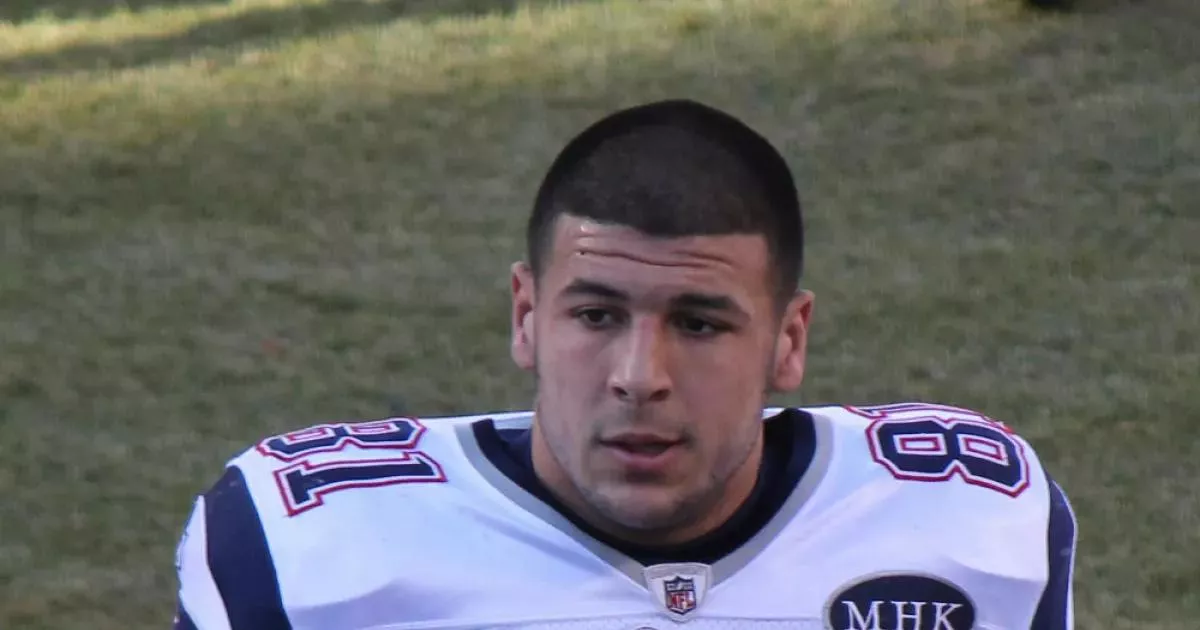A closer look at the lasting mark left by Aaron Hernandez—a timeline of influence.
Aaron Hernandez was a professional American football player, a tight end for the New England Patriots. His promising career was cut short when he was arrested and subsequently convicted for the 2013 murder of Odin Lloyd. Hernandez's case garnered significant media attention due to his celebrity status and the shocking nature of the crime. He was found guilty and sentenced to life in prison without parole. While in prison, he was also indicted but later acquitted for a separate double murder. In 2017, Hernandez committed suicide in his prison cell. Posthumous examination of his brain revealed severe chronic traumatic encephalopathy (CTE).
2012: Fear of Sexuality Being Revealed
In 2012, prosecutors intended to raise the issue of Aaron Hernandez's sexuality during the double homicide trial, which frightened him, as he wished to keep his sexuality a secret.
April 25, 2017: Lawyers File Motion to Vacate Murder Conviction
On April 25, 2017, Aaron Hernandez's lawyers filed a motion to vacate his murder conviction at Massachusetts Superior Court in Fall River.
May 9, 2017: Murder Conviction Vacated
On May 9, 2017, Aaron Hernandez's murder conviction was vacated due to the legal principle of abatement ab initio.
May 9, 2017: District Attorneys Plan to Appeal Ruling
As of May 9, 2017, the Bristol County district attorneys stated they planned to appeal the ruling to vacate Aaron Hernandez's conviction, potentially to the Massachusetts Supreme Court. The Lloyd family was disappointed, though their attorney didn't expect it to affect their wrongful death civil suit.
November 2018: Massachusetts Supreme Judicial Court Hearing
In November 2018, the Massachusetts Supreme Judicial Court heard the appeal regarding Aaron Hernandez's vacated conviction, with the Lloyd family's attorney arguing against the cancellation of the conviction.
2018: Baez's Investigation and Belief in Suicide
In 2018, Jose Baez wrote that he was initially suspicious of the suicide finding, but later came to believe that Aaron Hernandez had taken his own life, with CTE being a major contributing factor.
2018: Contents of Suicide Notes Revealed
In 2018, Jose Baez, Aaron Hernandez's attorney, reprinted the contents of the notes in his book Unnecessary Roughness. The letters were addressed to Baez, his fiancée, and daughter.
February 2019: Lawsuit Dismissal
In February 2019, the lawsuit filed by Aaron Hernandez's fiancée and daughter against the Patriots and the NFL was dismissed due to a missed deadline to opt out of a class action suit. Hernandez was one of at least 345 NFL players diagnosed with CTE after death.
March 13, 2019: Supreme Judicial Court Reinstates Conviction
On March 13, 2019, the Supreme Judicial Court reinstated Aaron Hernandez's conviction, officially ending the practice of abatement ab initio. Hernandez's estate vowed to appeal the ruling further.
2019: Conviction Reinstated
In 2019, Aaron Hernandez's conviction for the murder of Odin Lloyd was reinstated following an appeal from prosecutors and Lloyd's family.
January 15, 2020: Netflix Documentary Release
On January 15, 2020, a Netflix documentary titled Killer Inside: The Mind of Aaron Hernandez was released.
Mentioned in this timeline

Pepsi is a cola-flavored carbonated soft drink and the flagship...
California is a U S state on the Pacific Coast...

College football is a popular amateur sport in the United...

Rob Gronkowski nicknamed Gronk is a retired American football tight...

The Super Bowl is the annual championship game of the...
Connecticut is a state in the New England region of...
Trending

3 months ago Rybakina stuns Swiatek, Advances to WTA Finals Semifinal in Riyadh

Stocks represent fractional ownership of a corporation granting shareholders a proportional claim to earnings assets upon liquidation and voting rights...

Samsung Group is a South Korean multinational manufacturing conglomerate and the largest chaebol in South Korea Headquartered in Seoul the...

2 months ago Riot Releases League of Legends Patch 25.24 with WASD Movement and TFT Set 16.

2 months ago Jesse Plemons discusses 'Bugonia', Oscar buzz, and career from child actor.

6 months ago Adria Arjona's Movie Release Botched; Jason Momoa Shaves Beard, Stuns Fans.
Popular

Thomas Douglas Homan is an American law enforcement officer who...

Martin Luther King Jr was a pivotal leader in the...

XXXTentacion born Jahseh Dwayne Ricardo Onfroy was a controversial yet...

Instagram is a photo and video-sharing social networking service owned...

KFC or Kentucky Fried Chicken is an American fast-food chain...

Jupiter is the fifth and largest planet from the Sun...
